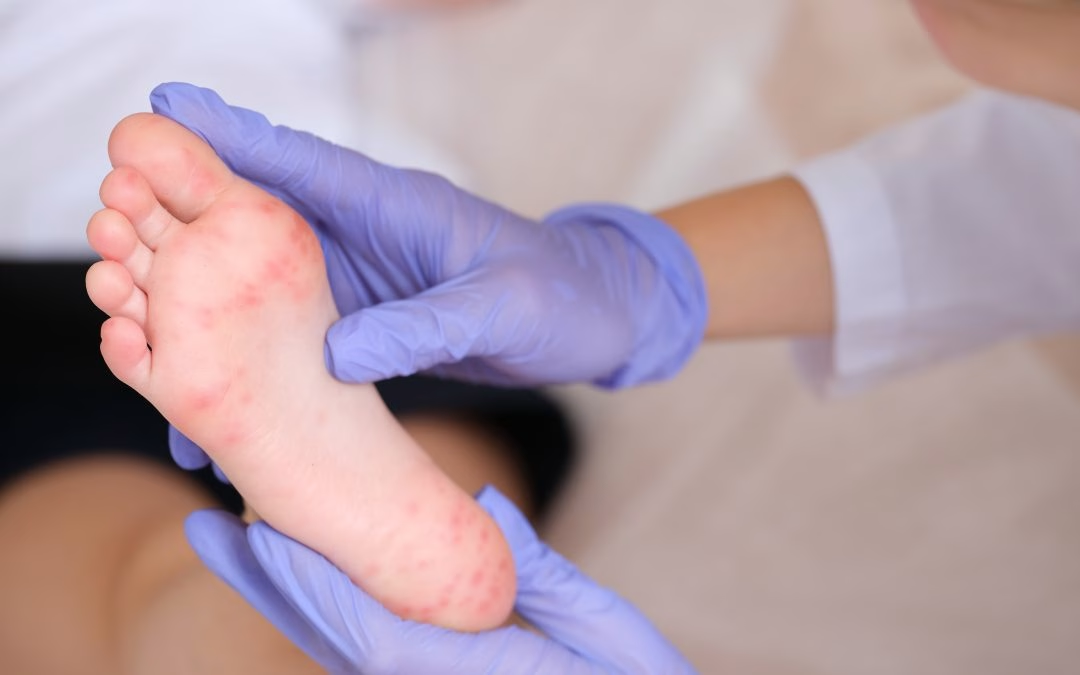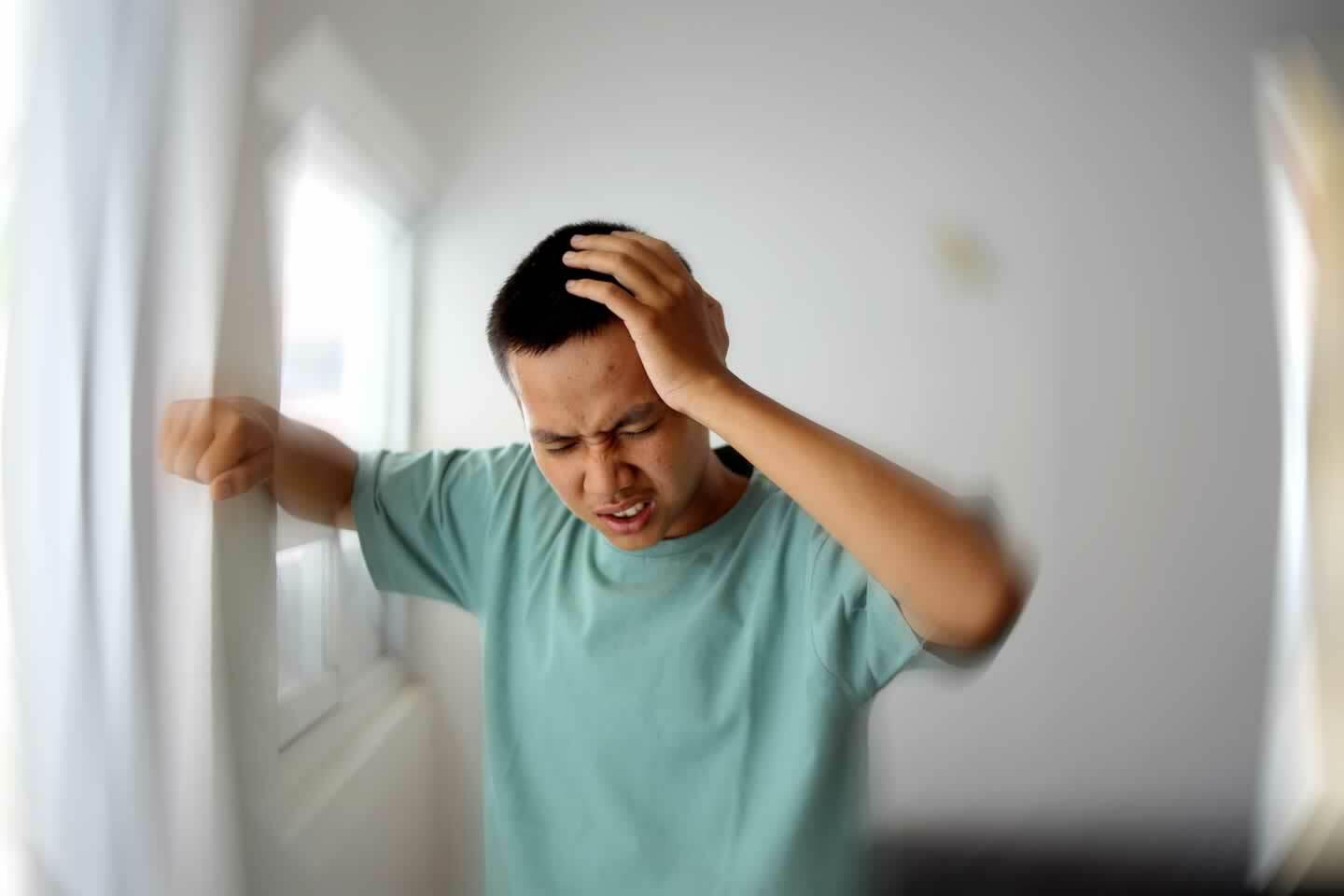
Kids love to interact with everything around them. Showing you bird houses while you grab some bird food from The Bird Shoppe, running immediately to the playground at the park, and somehow get into the flowerpot dirt at home. While that curiosity is admirable, it also exposes them to sickness. One such sickness this season is hand, foot, and mouth disease (HFMD), but don’t worry, as good hygiene practices, such as washing hands frequently, help prevent it.
Hand, foot, and mouth disease (HFMD) can be a source of worry for parents and children alike. This viral illness is especially common in young children and spreads easily, which can lead to concerns about the length of time symptoms will linger. Whether your child is out of daycare or school, or another adult in your household is affected, it’s natural to want to know how long these symptoms might last. So, just how long does hand, foot, and mouth disease endure?
Let’s break down the typical timeline of the illness, what you can expect, and when you might need to visit our urgent care center.
Typical Duration of HFMD Symptoms
Most instances of hand, foot, and mouth disease last from 7 to 10 days. This timeframe accounts for the body’s immune response to the virus and the eventual resolution of symptoms. The illness often starts with a fever and progresses to a distinctive rash on the hands, feet, mouth, and sometimes the buttocks. Painful mouth sores may also develop, leading to discomfort during eating or drinking.
While the symptoms are generally mild, they can still be quite bothersome, especially for young children who may have difficulty understanding their symptoms. It’s good to know that, although the virus can be uncomfortable, it usually resolves on its own without requiring specific medical care.
What Are the Stages of HFMD?
HFMD progresses in distinct stages, each lasting a few days:
- Fever: The first symptom of HFMD is often a fever, which can be accompanied by sore throat and reduced appetite. The fever typically lasts 2-3 days and is usually mild to moderate, though in some cases, it may be higher.
- Rash and Blisters: After the fever subsides, a rash or blisters will usually develop on the hands, feet, and sometimes on the buttocks. The rash often looks like red spots or small, fluid-filled blisters. This rash can last anywhere from 5 to 7 days.
- Mouth Sores: Painful sores inside the mouth are another common symptom of HFMD. These sores can make it difficult to eat or drink, which is why keeping the patient hydrated is especially important.
What Are Some Factors That Can Affect Recovery?
The duration of HFMD symptoms can vary depending on several factors, including the patient’s age and overall health:
- Age: While HFMD is most common in children under 5, older children and adults can also get it. Symptoms in adults are usually milder and may not last as long as in younger children.
- Hydration: Staying hydrated is crucial during recovery. Mouth sores can make it difficult to drink fluids, which can lead to dehydration. Encourage small, frequent sips of water or cold drinks to prevent dehydration.
- Immune System: A weakened immune system can prolong the recovery time. Children with compromised immune systems may take longer to recover from HFMD, and symptoms may be more severe.
When Should I Visit AFC Ooltewah?
Most cases of HFMD resolve without intervention within 7 to 10 days. However, it’s important to seek medical attention in certain situations. If symptoms continue beyond 10 days, if your child shows signs of dehydration (such as minimal urination or a dry mouth), or if they cannot eat or drink due to painful mouth sores, it’s wise to visit urgent care.
Moreover, if your child develops a high fever (over 102°F) or appears to be in severe pain, it’s essential to consult a healthcare provider to evaluate their symptoms and ensure no complications are present.
How Can I Help My Child Recover Faster?
While there is no specific treatment for HFMD, you can take steps to make your child more comfortable while their body fights off the virus:
- Rest: Encourage your child to rest as much as possible. This will help their body conserve energy to fight off the virus.
- Pain Relief: Over-the-counter medications, like acetaminophen or ibuprofen, can help reduce fever and relieve pain from mouth sores or a sore throat. Be sure to follow the dosage instructions on the medication.
- Hydration: Offer plenty of fluids, like water, cold milk, or ice pops, to keep your child hydrated. Avoid acidic or spicy foods, as these can irritate mouth sores.
While HFMD can be a difficult illness to manage, the good news is that it typically resolves on its own within about a week. By keeping your child comfortable, well-rested, and hydrated, you can help them recover as quickly as possible. Bring your child to AFC Ooltewah for fast, effective, and compassionate care you can trust.


